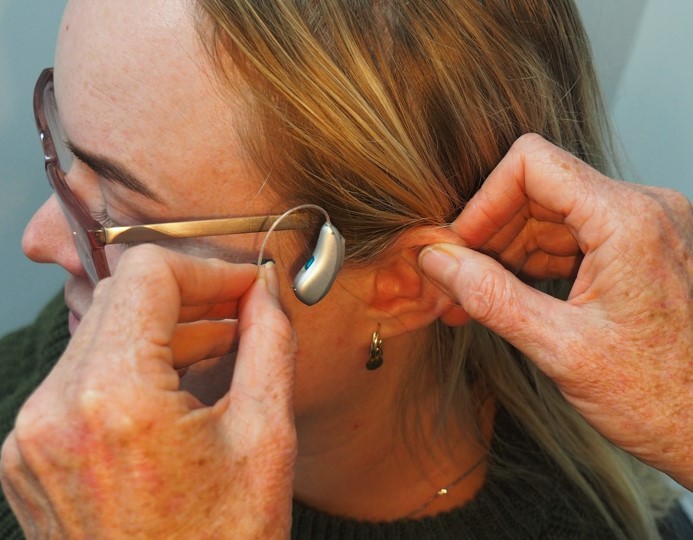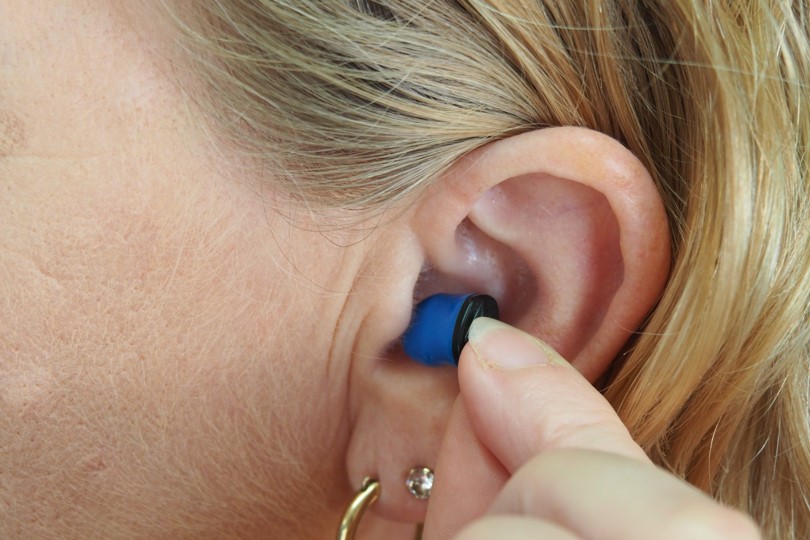Hearing Aids and Amplifiers: How They Differ
Hearing aids and hearing amplifiers both fall in the same category of gadgets that help a person with their hearing. They amplify the sound and audio in the surrounding of the person who is using them. Amplifiers can be picked up without being prescribed, however, hearing aids are necessary for people with mild-to-severe hearing loss.
Of course, people often wonder, between hearing amplifier vs hearing aid, which one is better? The answer to this question is not simple, as they can both prove beneficial for different people and cases. In this article, we will explain the differences between these two gadgets as well as mention their pros and cons.

Hearing amplifiers
Hearing amplifiers are wearable devices that are used for personal sound amplification. They have a built-in microphone that gathers sound from the surroundings of the wearer and then increases its volume so they can hear better and louder.
A prescription is not required to buy hearing amplifiers, this is because these devices are not meant for people that have hearing loss. Instead, they are made for improving the clarity of some noises, a typical use is while hunting or bird watching.
And while they can be useful in some situations, they are not suitable to be worn at all times. Prolonged use can cause some serious hearing damage, but this is only possible if the use is overextended.
Hearing Aids
People with mild to severe hearing loss can use hearing aids to amplify sounds so they can hear and fully engage in daily activities. There are many different sorts and styles that may be purchased. Some hearing aids are even available with accessories, like Bluetooth options for example, or artificial intelligence for more sophisticated models.
However, every hearing aid has three core elements in its build: a microphone, speaker, and amplifier. The sound is picked up by the microphone and is converted into electrical impulses that are sent to the amplifier which then sends it to the speaker. The ear then reaches the sound waves via the speaker.
In order to acquire a hearing aid, you must have a prescription from a doctor or an audiologist.
Main key differences between hearing aids and hearing amplifiers
While both hearing amplifiers and hearing aids may increase sound volume, these devices are best suited for certain user types.
People with little to no hearing loss should use hearing amplifiers to improve their hearing in specific surroundings, as mentioned before. A person with hearing loss could benefit more from hearing aids. Hearing aids may be programmed by audiologists to meet a person's unique needs, and they have multiple programs for various sound settings.
Customization
Depending on a person's requirements, hearing aids can be customized and offer a wider variety of functions. Additionally, there are many colors, designs, and types of hearing aids. On the other hand, hearing amplifiers often have a “one-for-all” design.
Prescription
To acquire hearing aids, a prescription is required. However, a prescription is not necessary to purchase a hearing amplifier.
Volume vs clarity
Instead of making sounds clearer, amplifiers make them louder. They frequently lack the ability to discern between speech and other similar noises, and they also lack feedback cancelation, which is a feature included in most hearing aids.
It's crucial that a person selects the right equipment for their needs. According to the FDA (The food and drug administration), some persons may have more severe hearing loss if they choose a hearing amplifier instead of a consultation with an audiologist and a prescription for hearing aids. This is due to the possibility that some types of hearing loss might worsen over time if left untreated.

According to one study, excessive volume levels can harm some direct-to-consumer hearing equipment, such as hearing amplifiers. Hearing amplifiers shouldn't be used at greater than necessary volumes.
Final Thoughts
Both hearing aids and hearing amplifiers increase sound volume. While hearing amplifiers are better suited for persons who desire more sound during recreational activities, hearing aids require a prescription and are only suitable for those who have hearing loss.
Anyone who thinks they could have hearing loss should consult an audiologist immediately. If a patient suffers hearing loss, a physician or audiologist can provide a prescription for a hearing aid that meets the patient's needs.
839GYLCCC1992



Leave a Reply